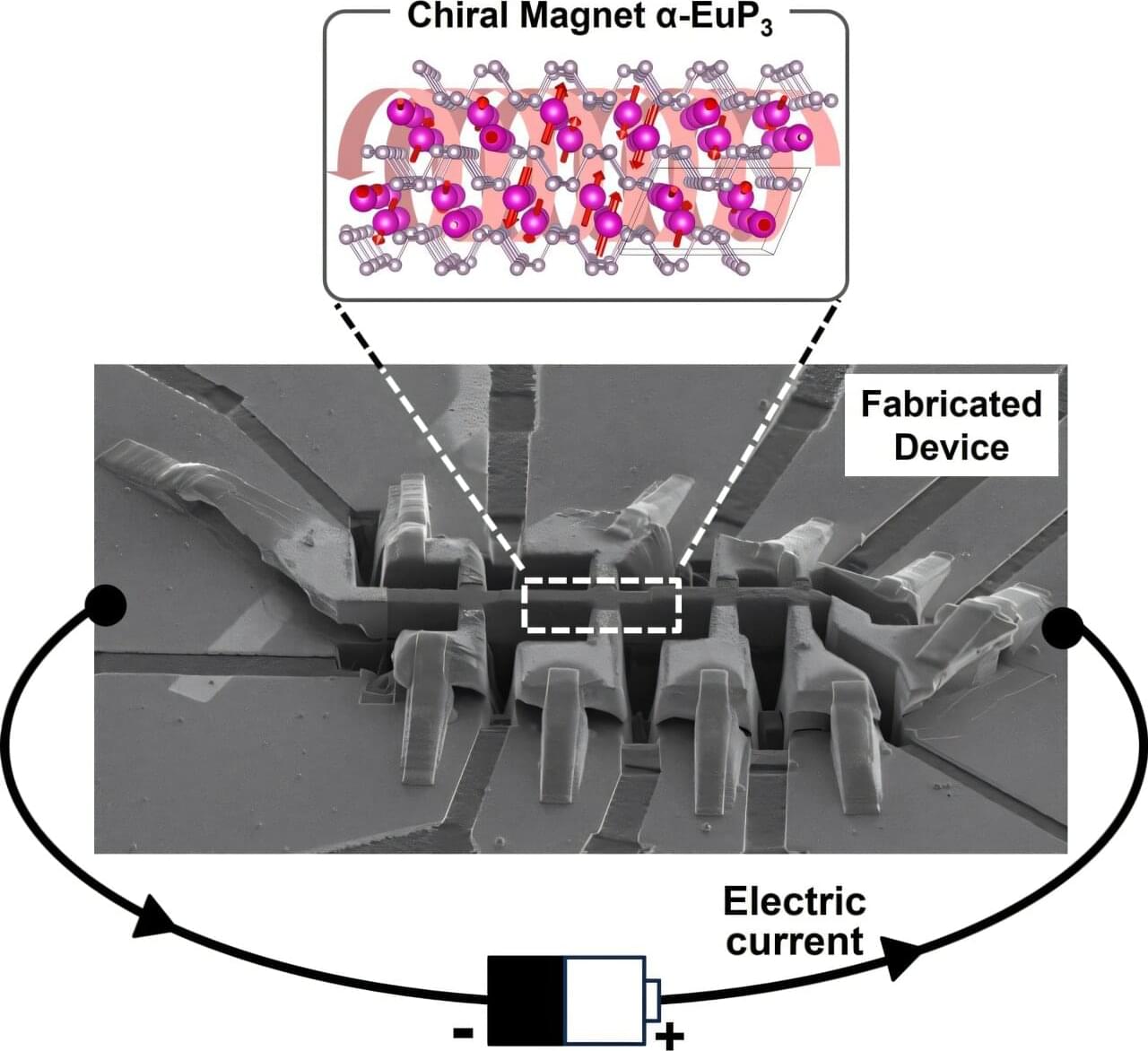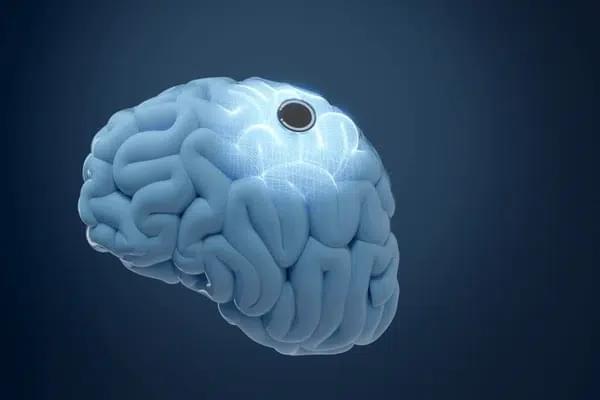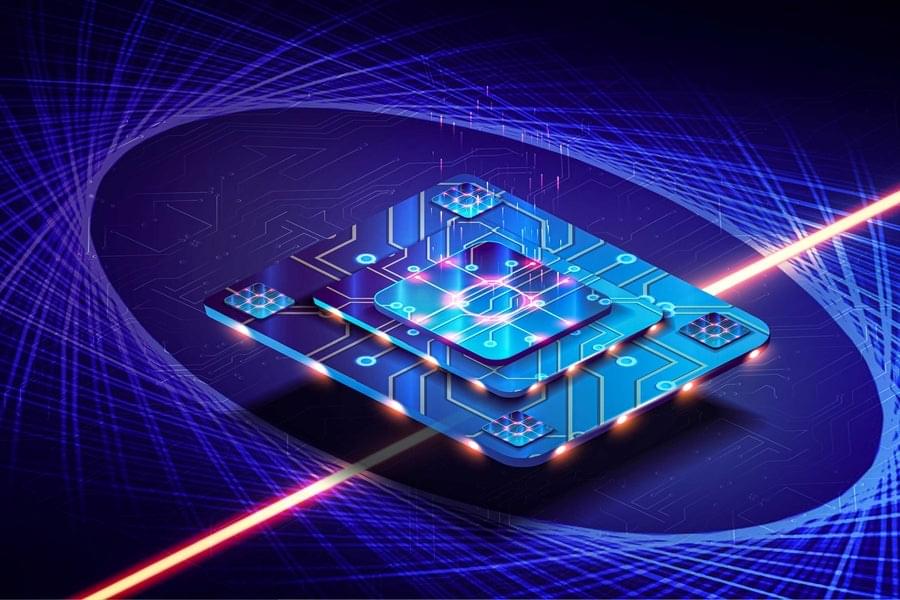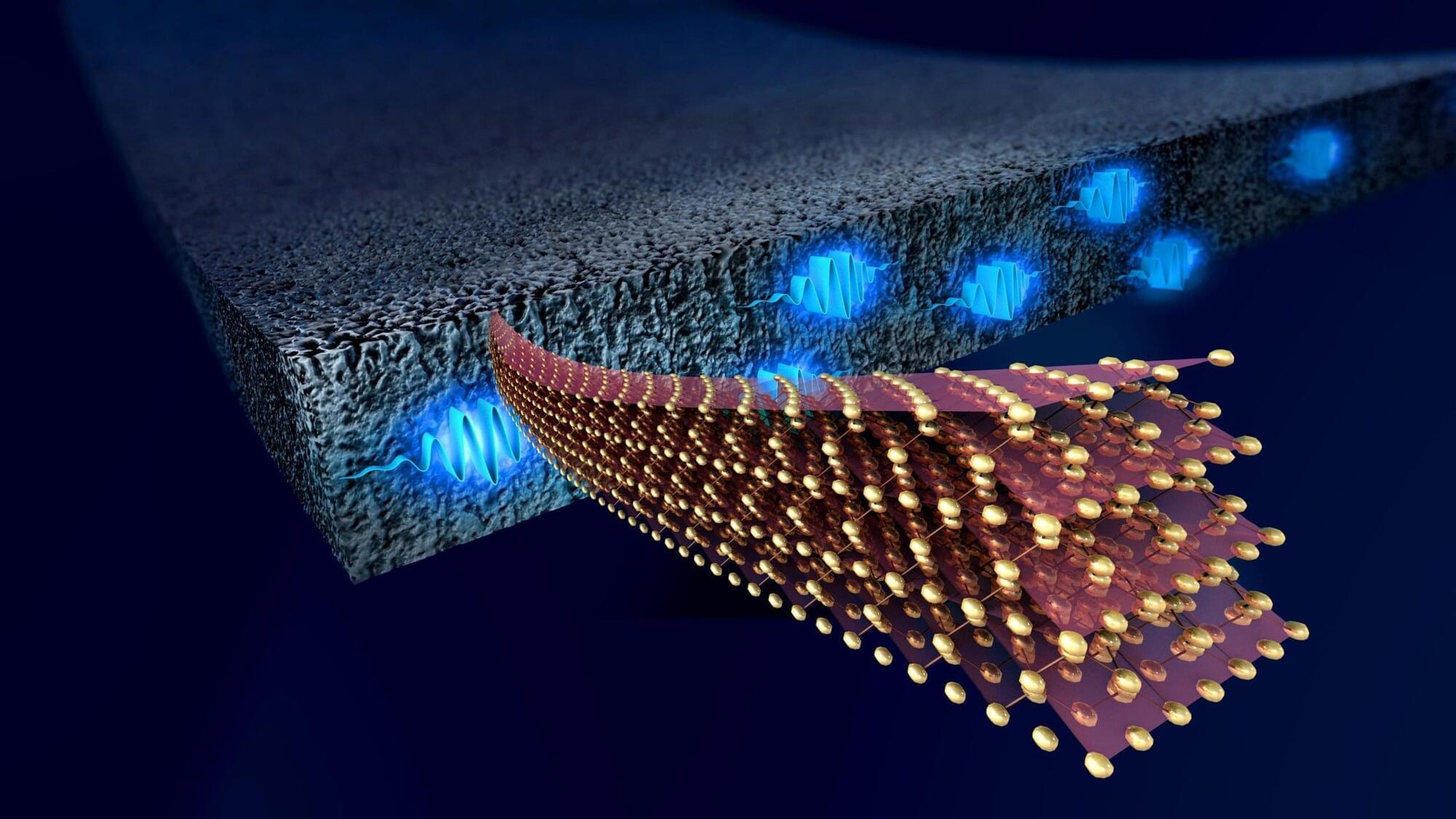Get your 14-day free trial of MyHeritage by using the following link https://bit.ly/CuriousDroid_MHIf you think your PC with the latest and greatest video ca…
Category: computing – Page 137

Unraveling how a ‘magnetic twist’ induces one-way electric flow
Researchers at Tohoku University, the University of Manchester, and Osaka University have made a breakthrough that has the potential to ignite the development of next-gen chiral information technology.
The findings are described in a study published in Proceedings of the National Academy of Sciences.
Chirality is a property of materials where their mirror image is not identical to the original—just like our left and right hands. This unique characteristic creates two distinct states, which researchers believe could one day be used to store digital information, much like the “0” and “1” states in conventional computing.

NASA and Firefly Blue Ghost Mission 1 Lunar Landing Updates and live vie from ISS #iss
All 10 NASA payloads remain healthy as Blue Ghost approaches it’s final destination and continues to support science operations along the way! The LuGRE payload for example — developed in partnership by.
NASA Goddard and ASI_spazio — acquired and tracked Global Navigation Satellite System signals for the first time in lunar orbit – a new record! #BGM1
After a successful Trans Lunar Injection burn on Saturday, Feb. 8, Firefly’s spacecraft carrying NASA science and tech to the Moon has departed Earth’s orbit and begun its four-day transit to the Moon’s orbit. Blue Ghost will then spend approximately 16 days in lunar orbit before beginning its descent operations. Since launching more than three weeks ago, Blue Ghost has performed dozens of health tests generating 13 gigabytes of data. All 10 NASA payloads onboard are currently healthy and ready for surface operations on the Moon.
NASA’s Radiation Tolerant Computer (RadPC), developed by Montana State University, successfully operated while passing through the Earth’s Van Allen radiation belts, providing insight on how to mitigate the effects of radiation on computers. This helps improve our understanding of the radiation environment that future astronauts may experience on Artemis missions.
During an on-orbit health check, NASA’s LMS, developed by the Southwest Research Institute, accurately detected a change in magnetic fields. This is a positive sign that LMS will be able to measure the Moon’s magnetic and electrical fields, shedding light on the Moon’s interior temperature and composition on the lunar surface.
Also during a health check, Firefly and NASA teams captured data and an interior image of the sample container a from NASA’s Lunar PlanetVac (LPV), indicating the payload is operational in advance of surface operations on the Moon. The LPV payload is a technology demonstration that is designed to efficiently collect and transfer lunar soil from the surface to other science instruments or sample return containers without reliance on gravity.
With a suite of NASA science and technology on board, Firefly Aerospace is targeting no earlier than 3:45 a.m. EST on Sunday, March 2, to land the Blue Ghost lunar lander on the Moon. Blue Ghost is s-lated to touch down near Mare Crisium, a plain in the northeast quadrant on the near side of the Moon, as part of NASA’s CLPS (Commercial Lunar Payload Services) initiative and Artemis campaign to establish a long-term lunar presence.

Researchers use 3D printed molds to produce neural interfaces
Neural interfaces are crucial to restoring and enhancing impaired neural functions, but current technologies struggle to achieve close contact with soft and curved neural tissues. According to Pusan National University, researchers have introduced an innovative method – microelectrothermoforming (μETF) – to create flexible neural interfaces with 3D micro-structures. Their findings show how this method improves neural recording and stimulation, with potential applications in artificial retina devices and brain-computer interfaces.
Microelectrode arrays (MEAs) are widely used for recording brain activity and stimulating neural tissues. However, conventional MEAs are typically flat – limiting their ability to conform to the natural curves of neural structures. Existing methods for adding 3D features require multiple fabrication steps – increasing complexity and restricting design possibilities.
To overcome these limitations, a team led by Associate Professor Joonsoo Jeong and Associate Professor Kyungsik Eom developed μETF – inspired by plastic thermoforming, a common technique for molding plastic sheets into different shapes. The findings are published in the journal of npj Flexible Electronics.


Dr. Sean Gibbons, Ph.D. — Institute for Systems Biology (ISB) — Microbes, Ecology And Medicine
Microbes, Ecology And Medicine — Dr. Sean M. Gibbons, Ph.D. — Associate Professor, Institute for Systems Biology (ISB)
Dr. Sean Gibbons, Ph.D. is Associate Professor at the Institute for Systems Biology (ISB — https://isbscience.org/people/sean-gibbons-phd/?tab=biography where his lab investigates how the structure and composition of evolving ecological networks of microorganisms change across environmental gradients, with a specific focus on how ecological communities in the gut change and adapt to individual people over their lifespans (i.e. host genotype, host development and host behavior) and how these changes impact human health (https://gibbons.isbscience.org/). His lab develops computational and experimental tools for investigating host-associated microbial communities to explore the interactions between ecology, evolution and ecosystem function, applying these insights to develop personalized interventions for improving human health and well-being.
Dr. Gibbons received his PhD in biophysical sciences from the University of Chicago in 2015, dual-advised by Jack Gilbert and Maureen Coleman. His graduate work focused on using microbial communities as empirical models for testing ecological theory.
Dr. Gibbons completed his postdoctoral training in Eric Alm’s laboratory in the Department of Biological Engineering at MIT from 2015–2018. His postdoctoral work focused on developing techniques to quantify individual-specific eco-evolutionary dynamics within the human gut microbiome.
Dr. Gibbons was awarded a Fulbright Graduate Fellowship to study microbiology and synthetic biology at Uppsala University in Sweden, where he earned a master’s degree in 2010. His PhD work was supported by an EPA STAR Graduate Fellowship. Upon joining the ISB faculty in 2018, his startup package was supported, in part, by a Washington Research Foundation Distinguished Investigator Award.

New Silicon Discovery Could Supercharge Quantum Computers
Scientists have unlocked a new understanding of mesoporous silicon, a nanostructured version of the well-known semiconductor. Unlike standard silicon, its countless tiny pores give it unique electrical and thermal properties, opening up potential applications in biosensors, thermal insulation, photovoltaics, and even quantum computing.
Performing computation using quantum-mechanical phenomena such as superposition and entanglement.
World’s smallest shooting video game uses nanoscale technology
A research team led by Professor Takayuki Hoshino of Nagoya University’s Graduate School of Engineering in Japan has demonstrated the world’s smallest shooting game by manipulating nanoparticles in real time, resulting in a game that is played with particles approximately 1 billionth of a meter in size.
This research is a significant step toward developing a computer interface system that seamlessly integrates virtual objects with real nanomaterials. They published their study in the Japanese Journal of Applied Physics.
The game demonstrates what the researchers call “nano-mixed reality (MR),” which integrates digital technology with the physical nanoworld in real time using high-speed electron beams. These beams generate dynamic patterns of electric fields and optical images on a display surface, allowing researchers to control the force field acting on the nanoparticles in real time to move and manipulate them.